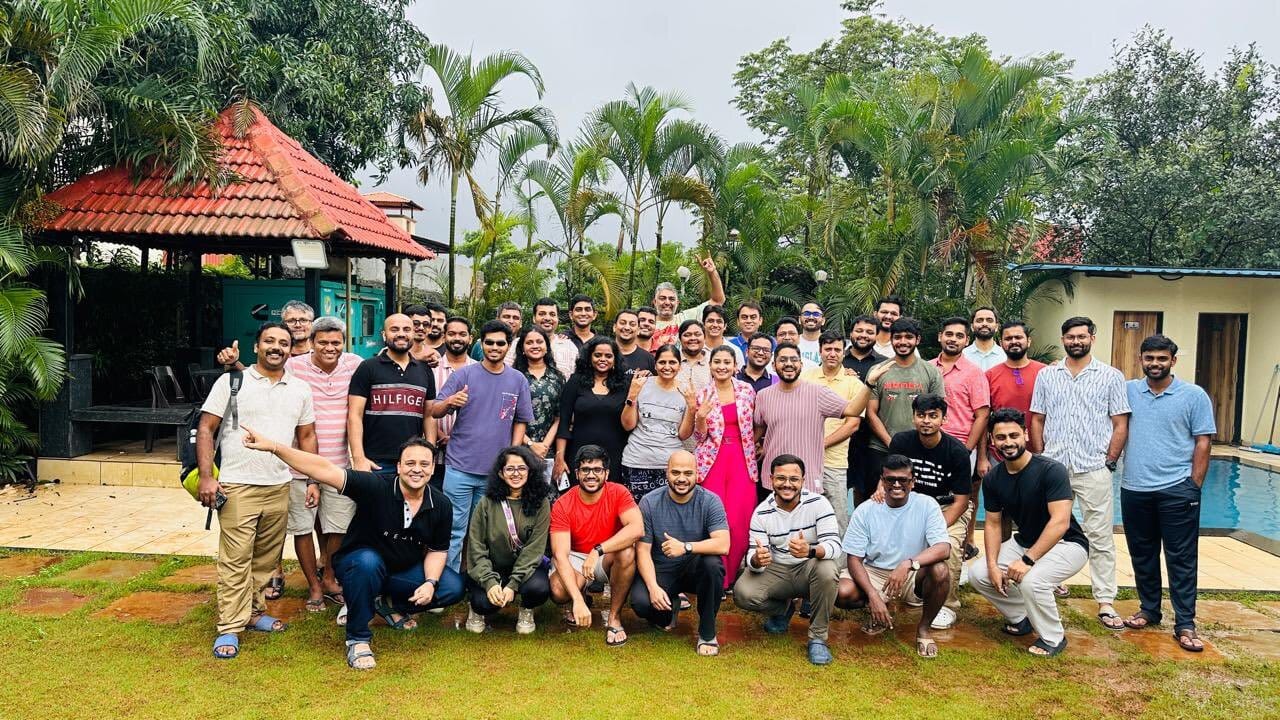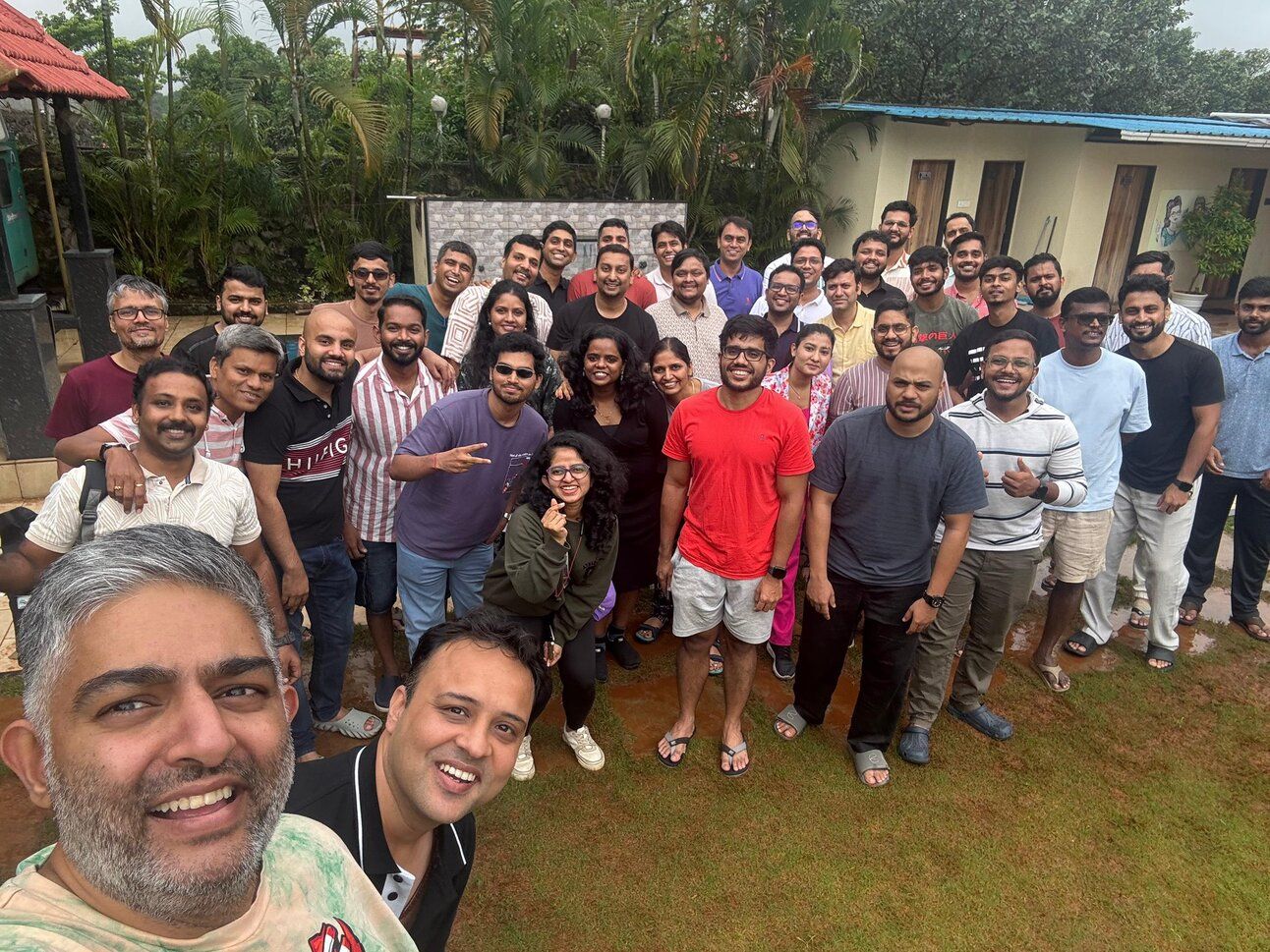- The Wisdom Project
- Posts
- The Third Space Theory: Why Modern Life Feels So Exhausting
The Third Space Theory: Why Modern Life Feels So Exhausting
+ secret weapon for HR..

Most adults have exactly two places in their life: work and home.
That's it. Two spaces. Two sets of expectations. Two masks to wear.
And we wonder why we're exhausted.
My Third Space Awakening

Last weekend, something unexpected happened. I hosted a retreat for 42 founders in Lonavala, and somewhere between the late-night conversations and early morning chai, I realized we'd accidentally created something I'd been missing for years.
A third space.
Not just a physical location, but a psychological sanctuary where nobody expected anything from anyone. Where we could drop our masks and just... be.
The relief was palpable.
People laughed.. really laughed.. for the first time in months.
Grown adults acted silly without apology. Successful founders admitted their fears without judgment.
And that's when it hit me:
We're not exhausted because we're doing too much. We're exhausted because we're existing in too few spaces.
The best HR advice comes from people who’ve been in the trenches.
That’s what this newsletter delivers.
I Hate it Here is your insider’s guide to surviving and thriving in HR, from someone who’s been there. It’s not about theory or buzzwords — it’s about practical, real-world advice for navigating everything from tricky managers to messy policies.
Every newsletter is written by Hebba Youssef — a Chief People Officer who’s seen it all and is here to share what actually works (and what doesn’t). We’re talking real talk, real strategies, and real support — all with a side of humor to keep you sane.
Because HR shouldn’t feel like a thankless job. And you shouldn’t feel alone in it.
The Two-Space Trap
Think about your typical week. Where do you spend your time?
Space 1: Work
Performance mode: ON
Professional mask: SECURED
Relationships: TRANSACTIONAL
Question: "How can I add value?"
Space 2: Home
Family obligations: ACTIVE
Domestic duties: ENDLESS
Recovery mode: ATTEMPTED
Question: "What needs to be done?"
We ping-pong between these two spaces like exhausted tennis balls, each demanding a different version of us. Work-You and Home-You. That's it. That's all the You's you get to be.
Is it any wonder we feel trapped?
What Exactly Is a Third Space?
Sociologist Ray Oldenburg coined the term "third place" in the 1980s. He was lamenting the loss of local pubs, barbershops, and town squares—those informal gathering spots that weren't work or home.
But in 2025, it's about more than just physical locations. It's about psychological freedom.
A true third space has:
No economic transaction (unlike your office)
No obligation (unlike family dinners)
No performance metrics (you can't "optimize" hanging out)
No predetermined role (you're not "the boss" or "the parent")
No agenda (beyond human connection)
It's Switzerland for your soul—neutral territory where you can explore who you are beyond your job title and family role.
The Great Disappearance
So what happened to our third spaces?
We optimized them out of existence.
Commute times increased, killing those spontaneous stops at the local coffee shop
Work-from-home blurred boundaries until everything became "home office"
Every minute became "productive time" to be maximized
Social media promised connection but delivered performance
Economic pressure turned every gathering into a networking opportunity
We traded our third spaces for efficiency. And now we're efficiently miserable.
The Cognitive Cost of Two Spaces
Here's what neuroscience tells us: Every time you switch contexts, your brain burns glucose. Every role requires its own mental model, its own set of behaviors, its own emotional regulation.
When you only have two contexts, you're not just switching between them—you're overloading them.
Work becomes where you process everything professional AND personal
Home becomes where you recover from work AND manage domestic life
There's nowhere to just... process being human
The result? Decision fatigue. Emotional exhaustion. That constant feeling of being "on" even when you're technically off.
Why Third Spaces Matter (The Research)
Studies on third spaces reveal surprising benefits:
50% reduction in reported stress when people have regular third space access
Increased creativity from exposure to diverse, low-stakes interactions
Better problem-solving when challenges can be discussed outside work/home contexts
Stronger sense of identity beyond professional and family roles
Improved mental health from reduced role-switching cognitive load
But here's the kicker: Third spaces don't drain your battery—they charge it. They're not another obligation; they're a liberation from obligation.
Identifying Your Third Space
A third space could be:
That coffee shop where you're a regular (but never open your laptop)
A hobby group where nobody knows your job title
An online community centered on shared interests, not professional development
A walking group where conversation is optional
A book club where wine matters more than literary analysis
A maker space where "failure" is just called "learning"
It's NOT:
Your LinkedIn networking happy hour
Your kids' school where you're forever "Aiden's mom"
Your gym where you track every metric
Your productivity co-working space
Any place where you're trying to "level up"
The Third Space Paradox
Here's what's strange:
We have more spaces than ever—physical, digital, virtual, augmented. Yet we have fewer psychological spaces. We're connected to everyone but free to be ourselves with no one.
Your Instagram is curated.
Your LinkedIn is professional.
Your Facebook is family-friendly.
Where's the space where you can be wonderfully, imperfectly, authentically you?
Creating Your Third Space
You don't need to host a 42-person retreat (though I highly recommend it). You just need one hour this week. One hour where you:
Don't check work messages
Don't run family errands
Don't try to improve yourself
Don't network or build your brand
Don't optimize anything
Just exist in a space—physical or virtual—with other humans who expect nothing from you except your presence.
The Challenge
This week, find or create one third space hour.
Some ideas:
Visit the same coffee shop at the same time three days in a row
Join an online community call about something you enjoy (not for work)
Attend a local meetup with zero networking intent
Start a walking group with one simple rule: no work talk
Find a hobby group where being bad at the hobby is perfectly fine
The only requirement? No agenda beyond being human together.
Questions for Reflection
Before you rush off to optimize your third space search (see what I did there?), sit with these questions:
What percentage of your week exists outside work/home contexts?
Where do you go when you need to just think?
When did you last have a conversation with no purpose?
Who knows you outside of your roles?
What would your ideal third space feel like?
The Path Forward
We've engineered our lives for maximum efficiency, shuttling between work and home like productivity machines. Every minute accounted for. Every interaction purposeful. Every space optimized.
But humans aren't meant to be efficient. We're meant to be whole.
And wholeness requires space—a third space—to discover who we are beyond our job descriptions and family roles. A space where we can be unproductive, unimpressive, and utterly ourselves.
The exhaustion you feel? It might not be from doing too much. It might be from being too few versions of yourself.
So this week, give yourself permission to find that third space. That neutral zone. That psychological Switzerland where you can just be.
Your two-space self will thank you.
That’s it for this week.
See you next week.
Thanks,
Ayush and Aditi
P.S. Next week, I'll explore why these third spaces are essential for something we've forgotten how to do: make actual friends as adults. Spoiler alert: When everyone you know is either a colleague or a family member, genuine friendship becomes nearly impossible.
P.P.S. If you're curious about how 42 strangers accidentally created the ultimate third space in just 3 days, [you can read the full story here]. Fair warning: it involves calling ourselves cockroaches and laughing until our stomachs hurt.

